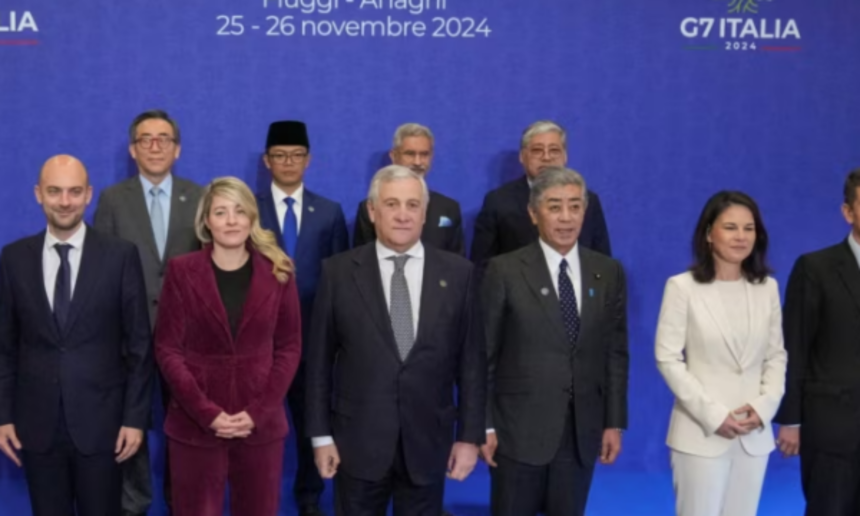The foreign ministers of the world’s most developed nations strongly supported a ceasefire between Israel and Hezbollah on Tuesday but refrained from commenting on the International Criminal Court’s (ICC) arrest warrants against Israeli Prime Minister Benjamin Netanyahu and his former Defense Minister Yoav Gallant.
At the conclusion of their two-day meeting near Rome, G7 ministers did not directly address the ICC, which is based in The Hague, or the arrest warrants issued for crimes against humanity against Netanyahu and Gallant.
Italy had raised the issue on the agenda, though the G7 members remain divided on the matter. The United States, Israel’s closest ally, is not a member of the ICC and has described the arrest warrants as “offensive.” The other G7 members, which are signatories of the court’s statute, are obligated to respect and enforce its decisions.
The G7 ministers’ statement emphasized that while Israel is exercising its right to self-defense, it “must fully comply with its obligations under international law in all circumstances, including international humanitarian law.” The statement further reiterated that all G7 countries — Canada, France, Germany, Italy, Japan, the United Kingdom, and the United States — remain committed to international humanitarian law and will act in accordance with their obligations.
The statement also made it clear that “there can be no equivalence between the terrorist group Hamas and the state of Israel.”
The G7 ministers were joined by foreign ministers from several Arab countries — Saudi Arabia, Jordan, Egypt, Qatar, and the United Arab Emirates — for discussions. Beyond Middle East conflicts, the ministers also discussed the ongoing war in Ukraine. Ukrainian Foreign Minister Andrii Sybiha briefed the group on Russia’s attacks on Ukraine’s energy infrastructure.
In their statement, the ministers condemned North Korea’s involvement in Ukraine and its “reckless and threatening nuclear rhetoric.”
Tensions have escalated since last week when Russia launched an experimental hypersonic ballistic missile at Ukraine. Russian President Vladimir Putin stated that the attack was a retaliation for the use of long-range American and British missiles by Kyiv to strike deep inside Russian territory.
The G7 countries reaffirmed their continued support for Ukraine, with the statement emphasizing that their support for Ukraine’s territorial integrity, sovereignty, and independence remains unwavering.
U.S. Secretary of State Antony Blinken, attending his last G7 meeting before leaving office with the Biden administration, said that Washington continues to stand with its allies.
“Our countries remain united alongside our partners to confront Russia’s ongoing aggression against Ukraine,” Blinken said. “We stand together to face the challenges posed by China. We stand united in our efforts for sustainable and lasting peace in the Middle East.”







